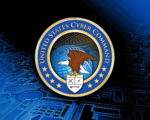Gen Digital, the parent company of Norton and Avast, has announced its acquisition of fintech firm MoneyLion in a deal valued at approximately $1 billion. The all-cash transaction, revealed on Tuesday, is aimed at strengthening Gen Digital’s consumer finance capabilities.
Under the agreement, Gen Digital will pay $82 per MoneyLion share, representing a 6.5% premium over MoneyLion’s last closing price. Additionally, MoneyLion shareholders will receive a contingent value right (CVR) worth $23 in Gen Digital shares, contingent on the cybersecurity company’s future stock performance.
STRATEGIC BENEFITS AND EXPANSION
The acquisition positions Gen Digital to enhance its financial wellness services by integrating MoneyLion’s personal finance platform, which currently serves over 18 million users. MoneyLion offers tools such as credit-building services and financial management solutions, making it a valuable addition to Gen Digital’s existing portfolio.
Gen Digital’s current financial services focus on helping institutions reduce fraud costs by incorporating cybersecurity tools that enhance customer data protection. By acquiring MoneyLion, Gen Digital aims to broaden its reach in the financial wellness space while leveraging its expertise in cybersecurity and subscription-based platforms.
MARKET IMPACT AND OUTLOOK
The acquisition is expected to close in the first half of Gen Digital’s fiscal year 2026. Once finalized, the deal is projected to boost Gen Digital’s adjusted per-share profit.
This move comes as Gen Digital continues to capitalize on growing demand for data protection and enterprise security services. With the rise of generative AI in business operations, the company’s cybersecurity solutions have gained importance for reducing risks and enhancing online safety.
The acquisition also highlights the broader trend of tech companies expanding into fintech, aiming to offer comprehensive solutions that address both financial management and cybersecurity needs.


















